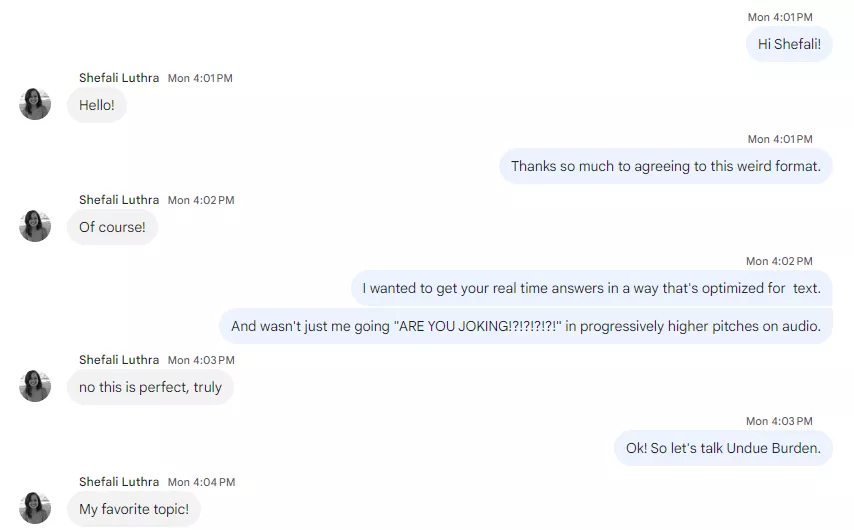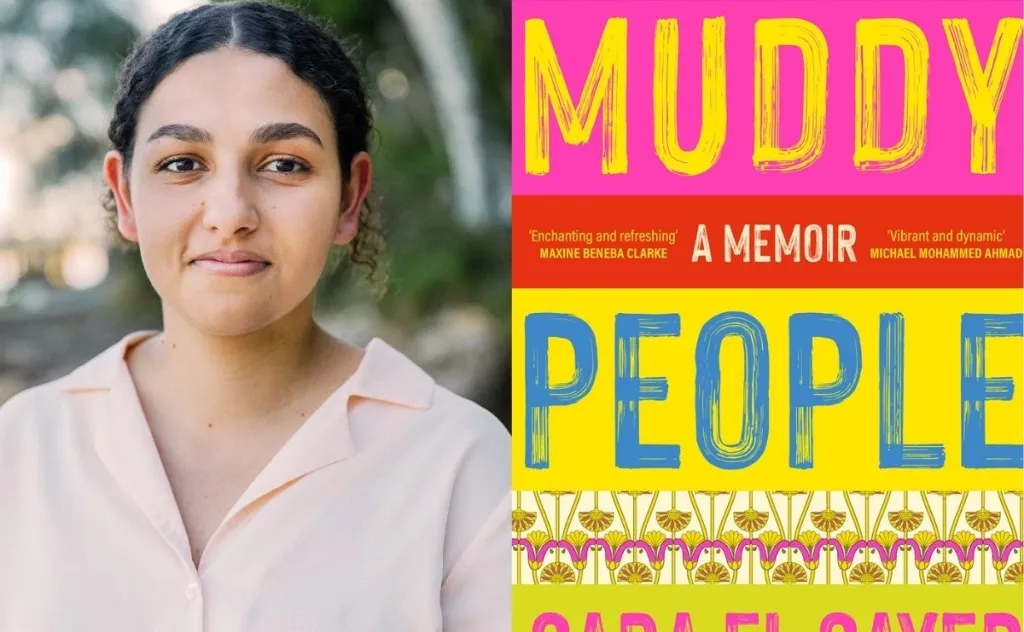This post is sponsored by Doubleday and includes affiliate links which means we make a small commission on any sales. All opinions are my own. Partnerships like these help us to pay our staff and to keep feminist media independent!
Undue Burden: Life and Death Decisions in Post-Roe America by Shefali Luthra humanizes the human costs in a post-Roe America. After Roe v. Wade fell, I had a lot of feelings about it, so I jumped at the opportunity to cover this book. In 10 chapters, Shefali (we’re on a first name basis) examines stories ranging from a teenager in Texas who found herself pregnant to the actual doctors who are drinking from a firehose, trying to provide necessary care but live in states where laws change sometimes from one day to the next.
As part of our sponsorship, I had the opportunity to sit with Shefali and talk to her about the book. Knowing that this was coming on the blog, I opted for a format which still allowed us the ability for real time discussions. I decided to chat with her over text and give you all the screenshots of our conversation. For our readers who utilize a screen reading tool – the text is for each image is located in the alternative text description.















Thank you so much to Shefali for talking about Undue Burden with us. In addition to her email and Twitter, you can keep up with her reporting featured in The 19th here!


 Anal Beads
Anal Beads Anal Vibrators
Anal Vibrators Butt Plugs
Butt Plugs Prostate Massagers
Prostate Massagers
 Alien Dildos
Alien Dildos Realistic Dildos
Realistic Dildos
 Kegel Exercisers & Balls
Kegel Exercisers & Balls Classic Vibrating Eggs
Classic Vibrating Eggs Remote Vibrating Eggs
Remote Vibrating Eggs Vibrating Bullets
Vibrating Bullets
 Bullet Vibrators
Bullet Vibrators Classic Vibrators
Classic Vibrators Clitoral Vibrators
Clitoral Vibrators G-Spot Vibrators
G-Spot Vibrators Massage Wand Vibrators
Massage Wand Vibrators Rabbit Vibrators
Rabbit Vibrators Remote Vibrators
Remote Vibrators
 Pocket Stroker & Pussy Masturbators
Pocket Stroker & Pussy Masturbators Vibrating Masturbators
Vibrating Masturbators
 Cock Rings
Cock Rings Penis Pumps
Penis Pumps
 Wearable Vibrators
Wearable Vibrators Blindfolds, Masks & Gags
Blindfolds, Masks & Gags Bondage Kits
Bondage Kits Bondage Wear & Fetish Clothing
Bondage Wear & Fetish Clothing Restraints & Handcuffs
Restraints & Handcuffs Sex Swings
Sex Swings Ticklers, Paddles & Whips
Ticklers, Paddles & Whips









